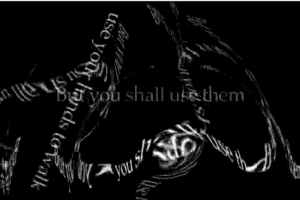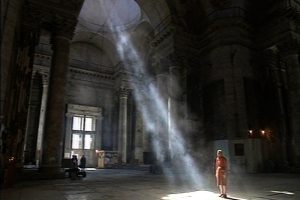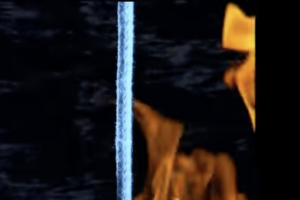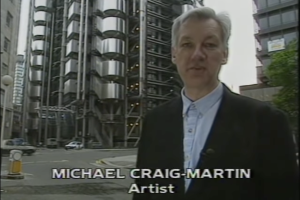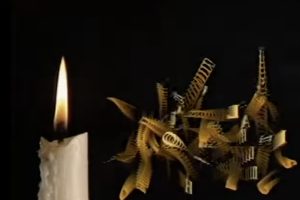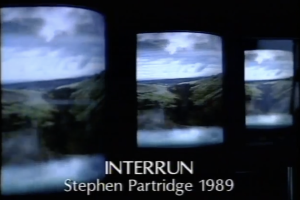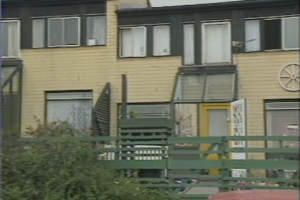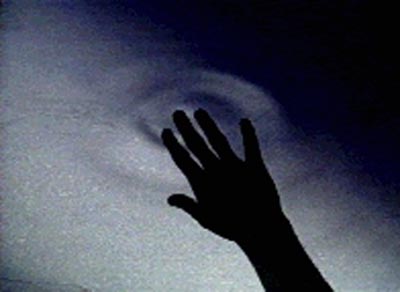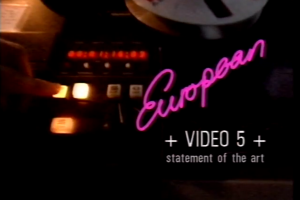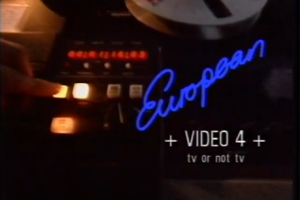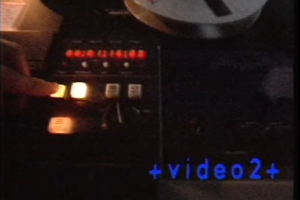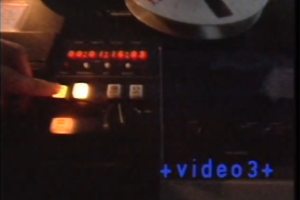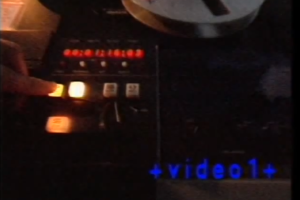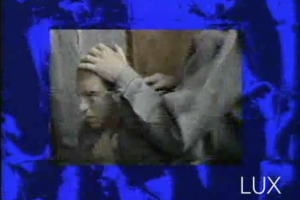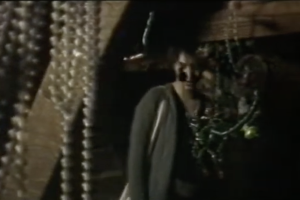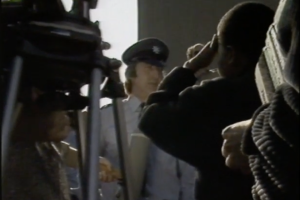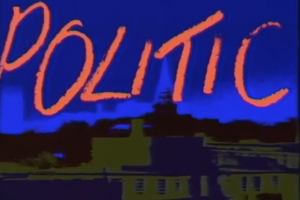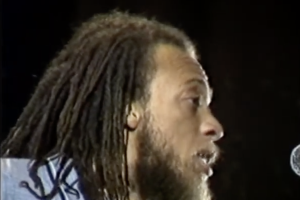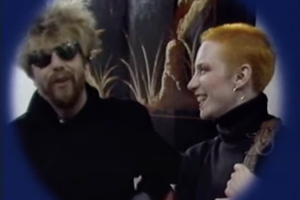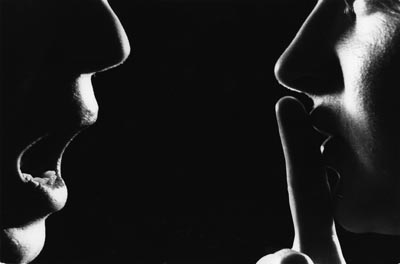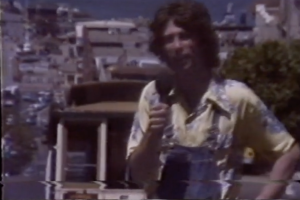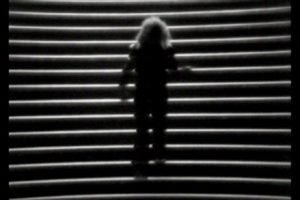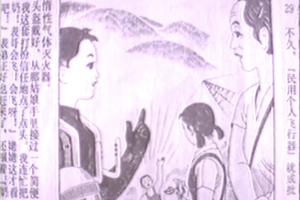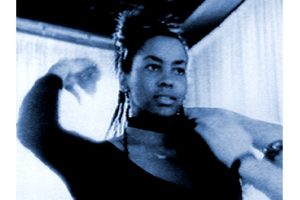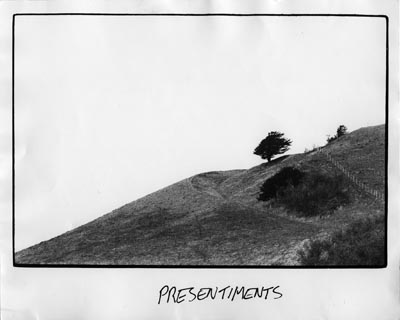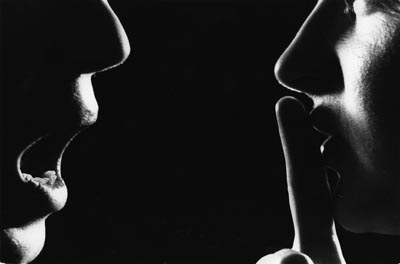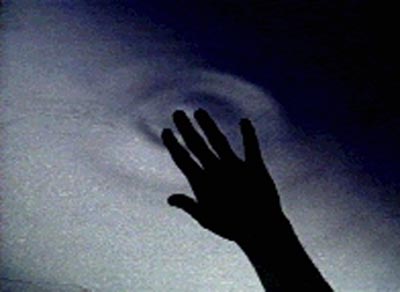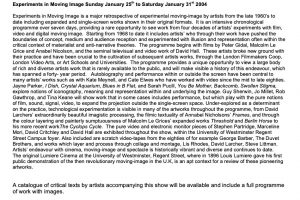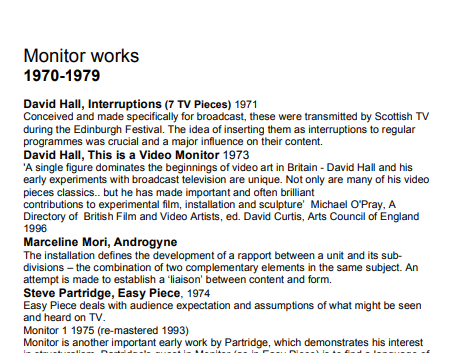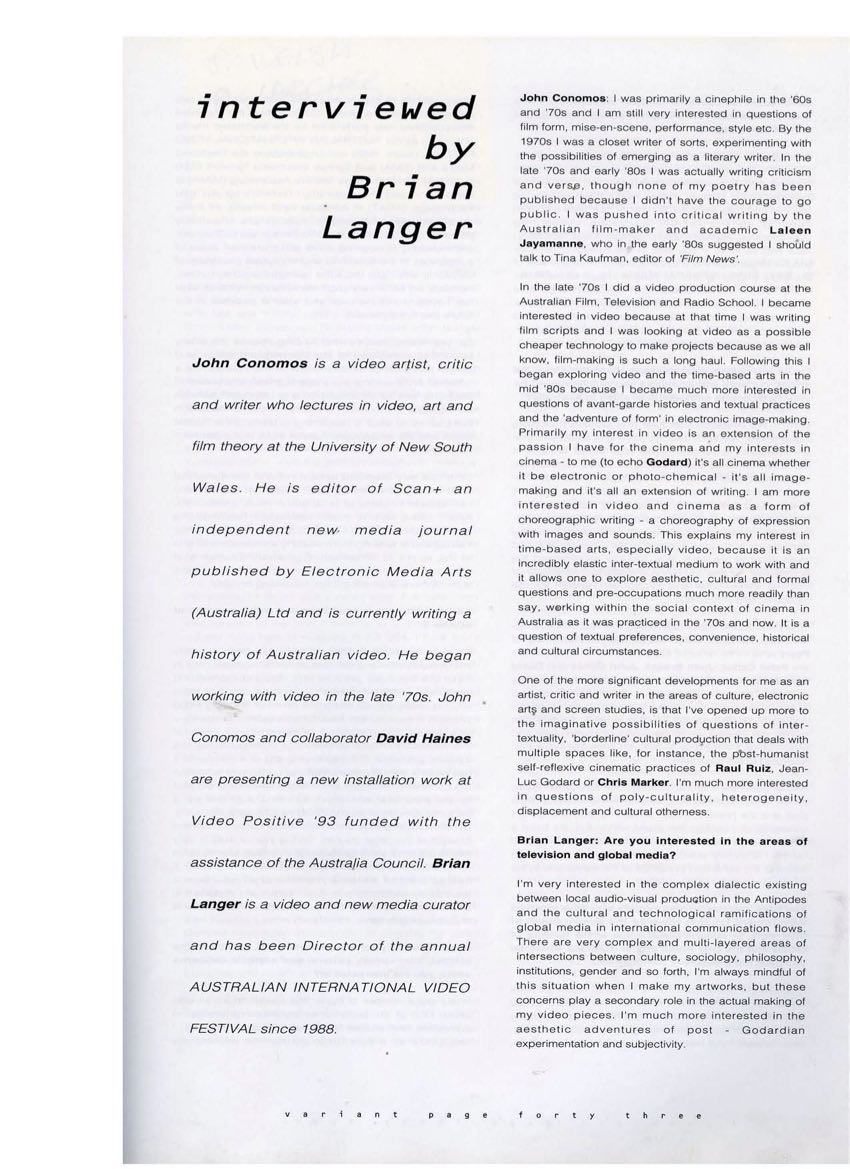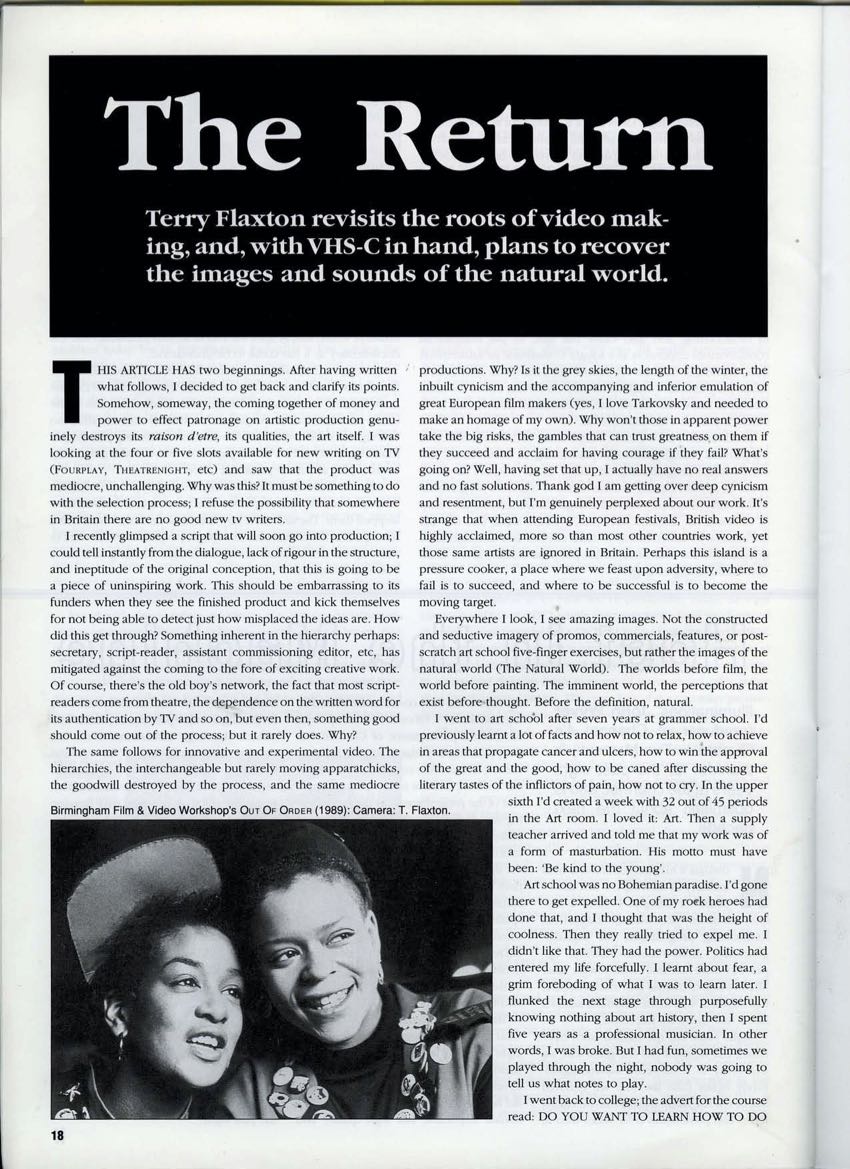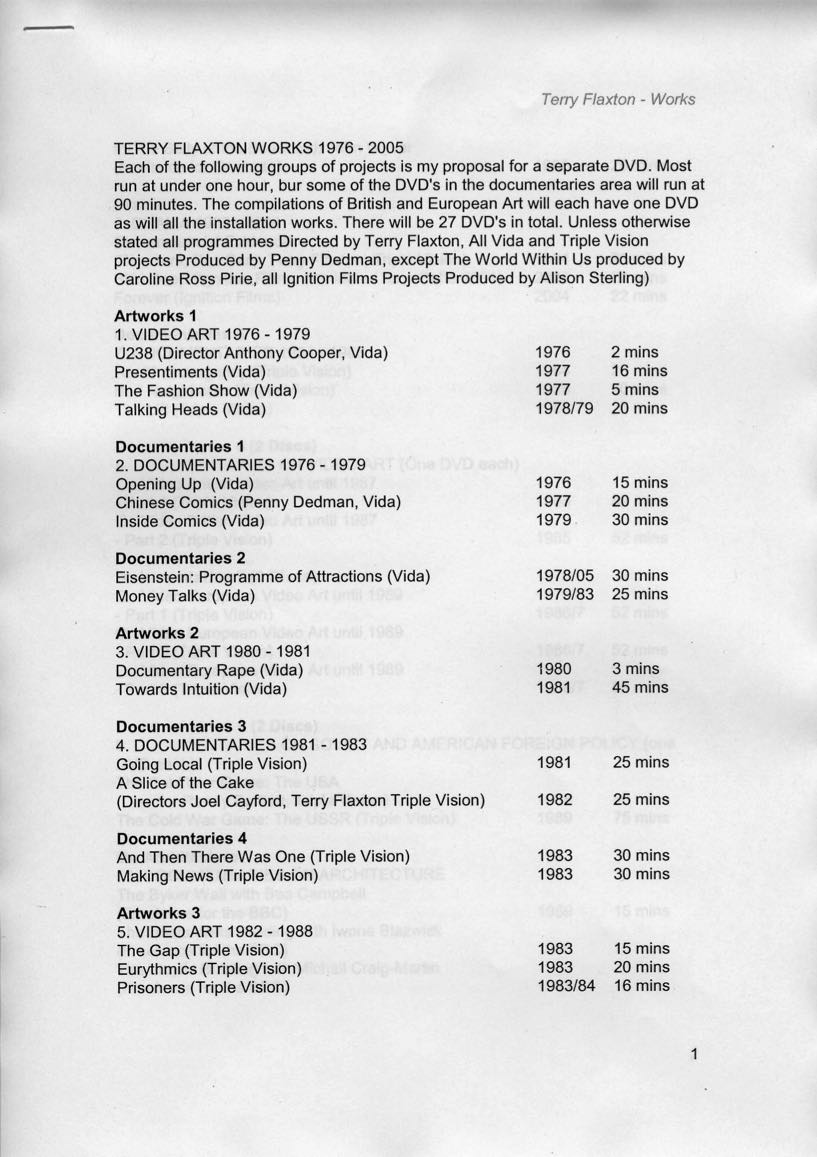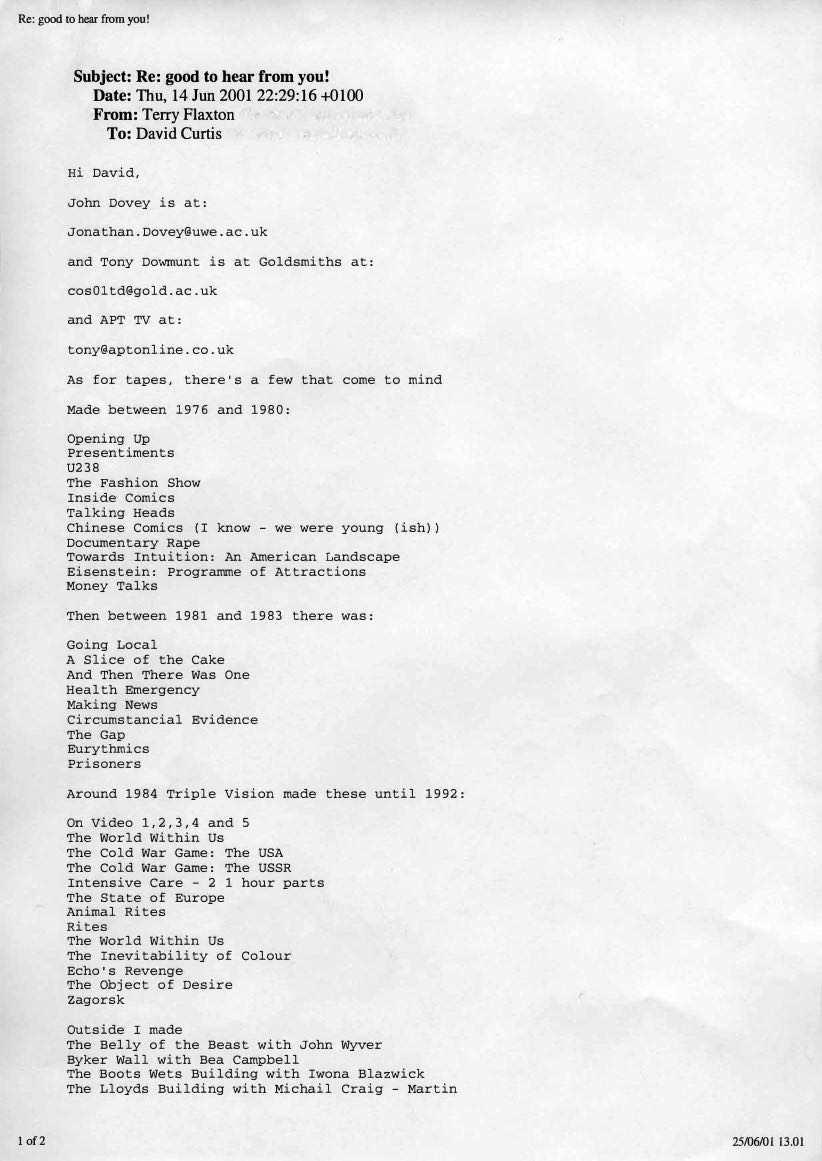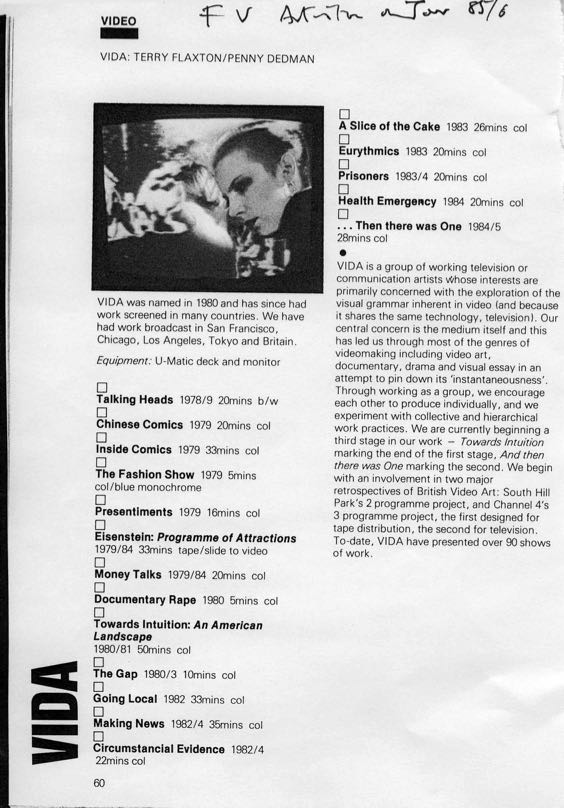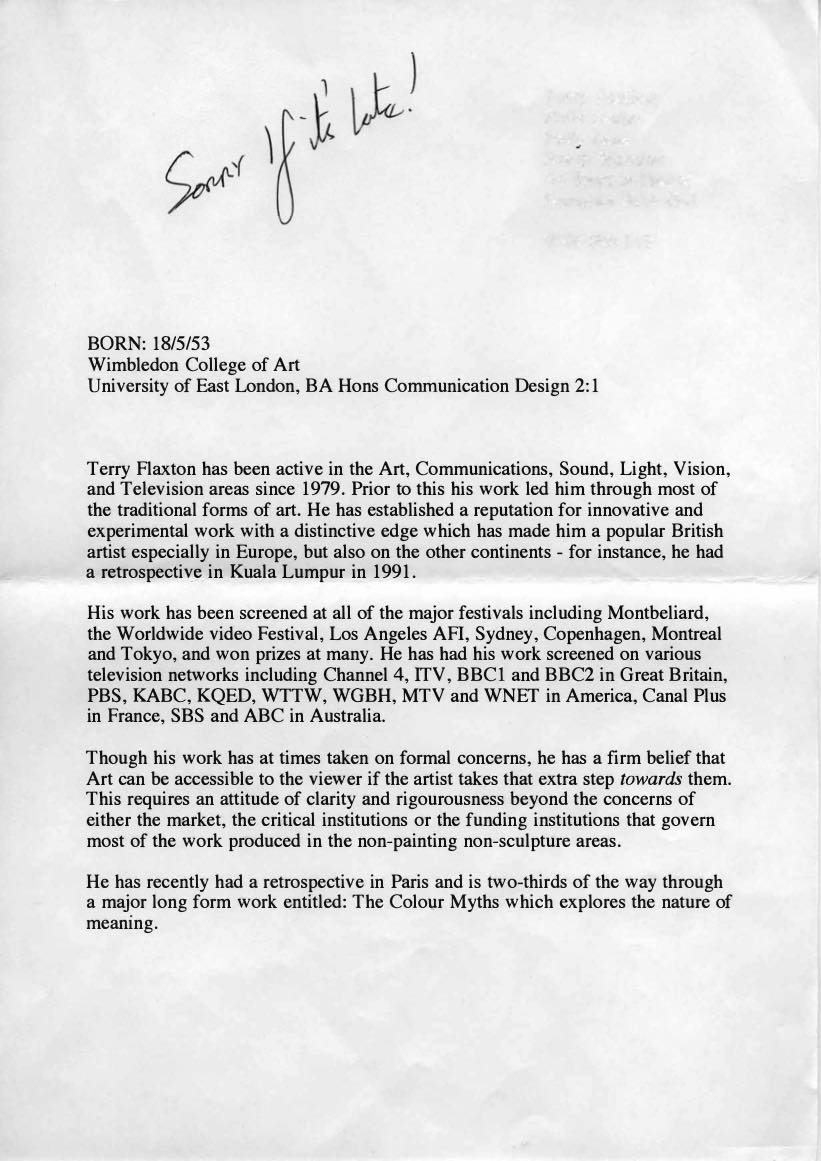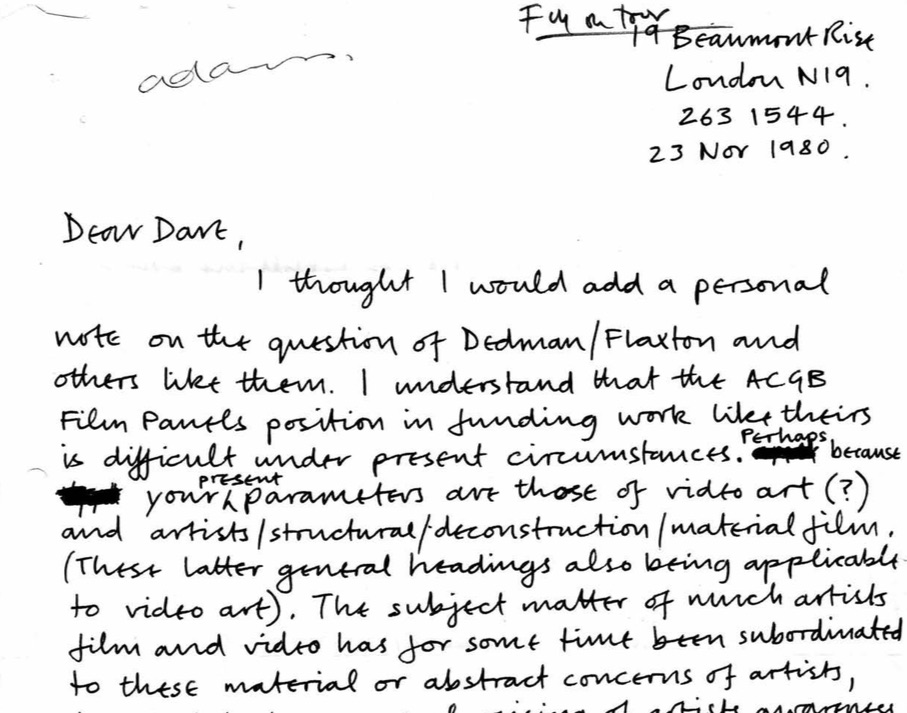Flaxton, Terry
Terry Flaxton, whether in his own work or in his involvement with early video groups Vida and Triple Vision has had a long term commitment to the ‘politics of beauty’ within the creation of art work, both analogue and digital. Beginning in 1976 with formats such as 2 inch Quadruplex, 1 inch reel to reel, or half inch black and white, Flaxton has sort to squeeze the maximum imaging capacity from the formats limited resources. His first piece, a collaboration, ‘Opening Up’, disclosed to him the secrets of an immediate form of moving image construction and what that might mean about the aesthetics one could employ. In works such as ‘Talking Heads’ (half inch black and white, prize winner at the 1979 Tokyo Video Festival) Flaxton has sought to expose the construction of the medium and all of its readings both formal and aesthetic without lapsing into a dull formalism which characterised much early video work.
Vida were committed not only to making work, but also its exhibition and by 1980 had produced 150 shows. Flaxton became involved with London Video Arts and curated shows at London’s Air and Acme galleries. Through this commitment Flaxton went on to be a co-organiser of the 1st Independent Video Festival held at the Film Co-op in 1980. Flaxton was involved in co-ordinating and editing the Miners Tapes with many others.
After visiting Video West in San Francisco in 1980, Flaxton ran the early facility Videomakers, in Soho and began to earn his living as an editor and also as a Director of Photography, and learned good technical understanding of the media to be able to render aesthetic concerns visible. Flaxton, Penny Dedman and Kez Cary formed Triple Vision and later Renny Bartlett replaced Cary. Triple Vision initially were known for their enquiries into documentary form and were eventually commissioned in 1986 to make a series about video art for Channel 4 entitled ‘On Video’, which eventually ran to five one hour episodes, cataloguing both UK and European video art. He was present for shooting ‘1984’ Ridley Scott’s ground breaking commercial for introducing Apple’s Macintosh and his footage was used to heighten the profile of Scott’s commercial before its only transmission in the middle of the ’84 Superbowl. Flaxton also appropriated the footage to make ‘Prisoners’. In 1988 Flaxton received a commission from John Wyver’s ‘Ghosts in the Machine’ and made the award winning ‘World Within Us’.
Flaxton has exhibited single monitor and installation work extensively at Festivals around the world and continued making with enthusiasm and zeal for the digital variant of video and was Creative Fellow in High Resolution Imaging at Bristol University (2007 – 2010). In 2007 his work ’14 History Lessons, 18 Visions, 21 Beatifications’ premiered at a major European Festival. This long form work began in 1989, has taken 18 years to complete and is an expression of the abiding concern discovered in Flaxton’s first moments in analogue video – the aesthetics of immediacy, both to be found in today’s digital technology.
updated 26 April 2022
-
View the interview transcript here
-
Videography:
1976
Opening Up (Vida)
U238 (Vida)1977
Chinese Comics (Vida)
The Fashion Show (Vida)
Presentiments (Vida)1978
Eisenstein: Programme of Attractions (Vida)1978/79
Talking Heads (Vida)1979
Inside Comics (Vida)1980
Documentary Rape (Vida)1981
Going Local (Triple Vision)
Towards Intuition – An American Landscape (Vida)1982
A Slice Of The Cake (Joel Cayford, Terry Flaxton)1983
Money Talks (Vida)
And Then There Was One (Triple Vision)
Eurythmics (Triple Vision)
The Gap (Triple Vision)
Making News (Triple Vision)1984
Health Emergency (Triple Vision)
Prisoners (Triple Vision)
Circumstantial Evidence (Triple Vision)
Prisoners (Triple Vision)1985
In the Belly of the Beast with John Wyver (for Granada)
Bad Neighbours (Triple Vision)
On British Video Art until 1987 (Triple Vision)1986/87
On European Video Art until 1989 (Triple Vision)1988
The World Within Us (Triple Vision)
The Lift (Triple Vision)
The Cold War Game: The USA (Triple Vision)1989
The Cold War Game: The USSR (Triple Vision)
The Byker Wall with Bea Campbell (for BBC)
Intensive Care (Triple Vision)
Echo’s Compassion1990
The Boots Wets Buliding with Iwona Blazwick (for BBC)1990/91
I am an Ox I am a Man I am a Woman (Triple Vision)
Rites (Triple Vision)1991
The Lloyds Bulding with Michael Craig-Martin (for BBC)
The Inevitability of Colour (Triple Vision)
The Colour Myths1992
Animal Acts (Triple Vision)
Echo’s Revenge (Triple Vision)
The Object of Desire (Triple Vision)
Zagorsk (Triple Vision)
The Eye Projects to the World
Timepiece
The Mystery of Nemesis1994
Heartlands2001
Skin Deep2003
Wings (Ignition)
The Dinner Party2004
Forever2005
Water Table
Dance Floor
Banquet2018
SCCA-Ljubljana Center for Contemporary Arts: Terry Flaxton: Paradigm, video screening 12 June 2018, at 7 pm -
External Links:
-
Artist works:
-
Artist organisations:
-
Artist assets:
-
Quotes:
'Terry Flaxton has been an impassioned, indefatigable presence in British Independent Video for almost two decades. During this time he has assembled an impressive body of work encompassing powerful, polemical documentary (produced as a member of ground-breaking outfits Vida and Triplevision) and highly personal, poetic video art'. - Steven Bode, Film and Video Umbrella "A gifted lighting cameraman, whose skills are extensively sought both inside and outside the industry, Flaxton brings a consummate polish to everything he shoots, exemplified equally by the verite 'Prisoners' (1984) and the visionary 'The World Within Us' (1988). A similar finely-honed sensibility distinguishes later pieces, like 'The Colour Myths' (1990 - 1995), which draws heavily from an up-to-minute-palette of digital effects. Attempting the kind of rhapsodic fusion of image and language that few of his contemporaries could contemplate, let alone execute, Flaxton's later works have tended to divide opinion; but there is no doubting their vigour, integrity and sheer visual panache." David Curtis, A Directory of British Video Artists, 1995. Since 1976 Terry flaxton has been creating moving image works. His first work, Opening Up, was made as a collaboration and began his initial enquiries into issues around the creation of moving-image artworks, documentary and the act of documentation and the creation of installations. Since then Terry has created and shown work around the world in various forms including single-screen, installation, cinema and television. Flaxton's latest work enquires into the nature of high resolution image making. www.visualfields.co.uk/flaxtonpage1.htm



